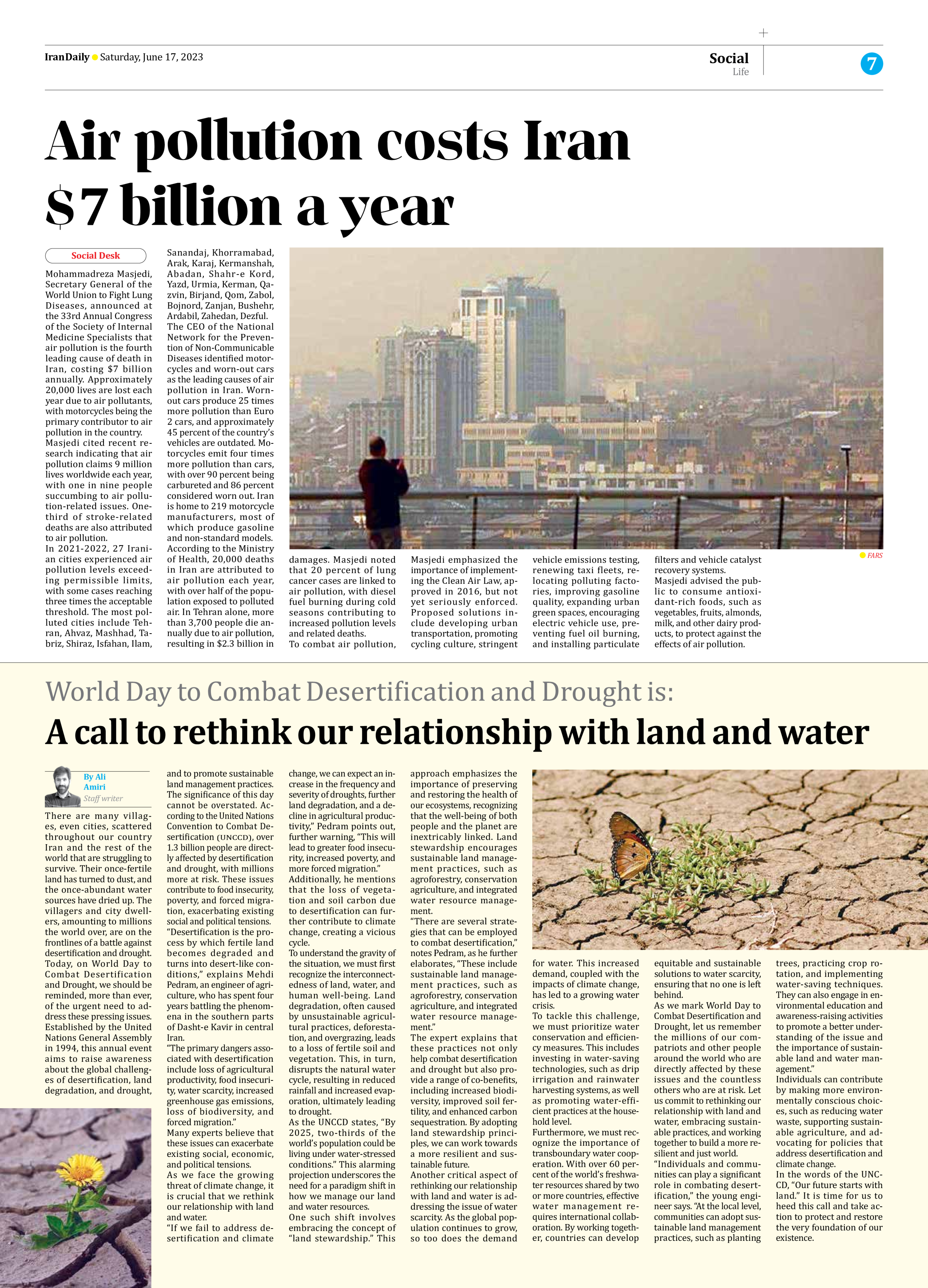
Air pollution costs Iran $7 billion a year
Mohammadreza Masjedi, Secretary General of the World Union to Fight Lung Diseases, announced at the 33rd Annual Congress of the Society of Internal Medicine Specialists that air pollution is the fourth leading cause of death in Iran, costing $7 billion annually. Approximately 20,000 lives are lost each year due to air pollutants, with motorcycles being the primary contributor to air pollution in the country.
Masjedi cited recent research indicating that air pollution claims 9 million lives worldwide each year, with one in nine people succumbing to air pollution-related issues. One-third of stroke-related deaths are also attributed to air pollution.
In 2021-2022, 27 Iranian cities experienced air pollution levels exceeding permissible limits, with some cases reaching three times the acceptable threshold. The most polluted cities include Tehran, Ahvaz, Mashhad, Tabriz, Shiraz, Isfahan, Ilam, Sanandaj, Khorramabad, Arak, Karaj, Kermanshah, Abadan, Shahr-e Kord, Yazd, Urmia, Kerman, Qazvin, Birjand, Qom, Zabol, Bojnord, Zanjan, Bushehr, Ardabil, Zahedan, Dezful.
The CEO of the National Network for the Prevention of Non-Communicable Diseases identified motorcycles and worn-out cars as the leading causes of air pollution in Iran. Worn-out cars produce 25 times more pollution than Euro 2 cars, and approximately 45 percent of the country’s vehicles are outdated. Motorcycles emit four times more pollution than cars, with over 90 percent being carbureted and 86 percent considered worn out. Iran is home to 219 motorcycle manufacturers, most of which produce gasoline and non-standard models.
According to the Ministry of Health, 20,000 deaths in Iran are attributed to air pollution each year, with over half of the population exposed to polluted air. In Tehran alone, more than 3,700 people die annually due to air pollution, resulting in $2.3 billion in damages. Masjedi noted that 20 percent of lung cancer cases are linked to air pollution, with diesel fuel burning during cold seasons contributing to increased pollution levels and related deaths.
To combat air pollution, Masjedi emphasized the importance of implementing the Clean Air Law, approved in 2016, but not yet seriously enforced. Proposed solutions include developing urban transportation, promoting cycling culture, stringent vehicle emissions testing, renewing taxi fleets, relocating polluting factories, improving gasoline quality, expanding urban green spaces, encouraging electric vehicle use, preventing fuel oil burning, and installing particulate filters and vehicle catalyst recovery systems.
Masjedi advised the public to consume antioxidant-rich foods, such as vegetables, fruits, almonds, milk, and other dairy products, to protect against the effects of air pollution.







